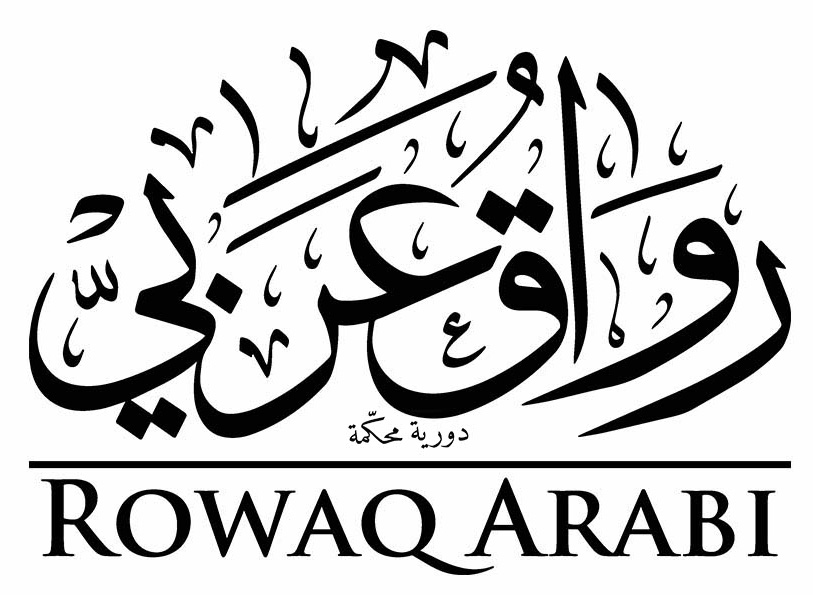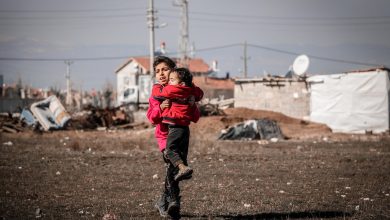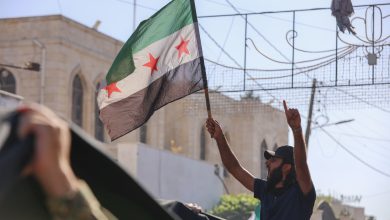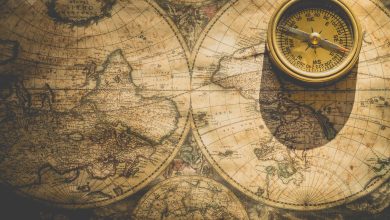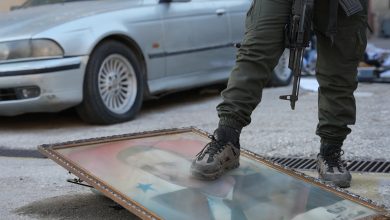Views: Is the Algerian Hirak Over?
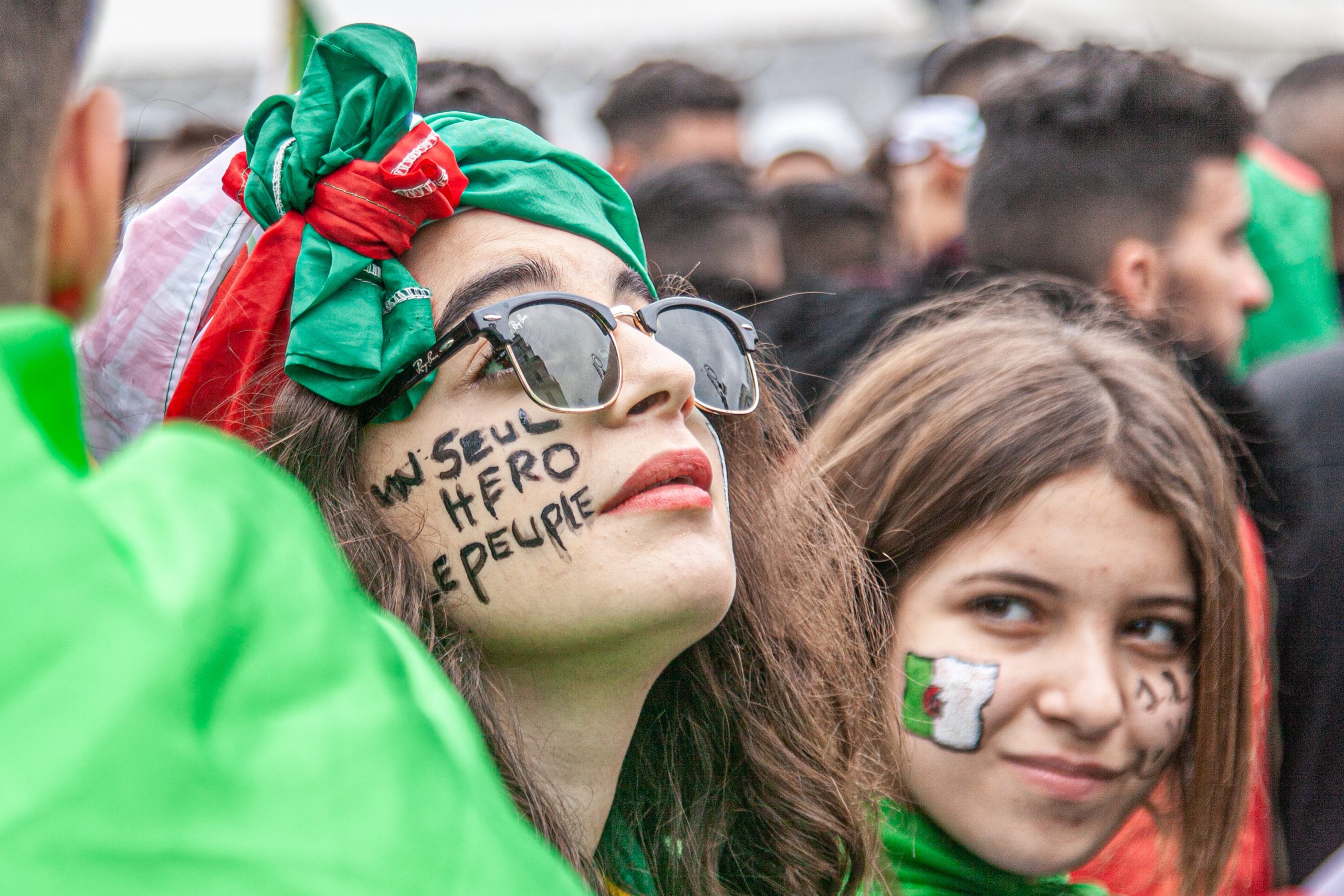
Citation: Martinez, Luis (2022) ‘Views: Is the Algerian Hirak Over?’, Rowaq Arabi 27 (3), pp. 13-19, https://doi.org/10.53833/SPHF8052
From 2019 to 2020, an unprecedented popular social movement in Algeria, known as the Hirak, aimed to peacefully change the system and establish the rule of law.[1] The protestors sought to establish a ‘civil, non-military state’, as their slogans proclaimed. Rereading the history of post-colonial Algeria, the demonstrators declared that the 1954 revolution had been hijacked by the army. They therefore revived forgotten figures from the nation’s history like Abane Ramdane, the architect of the Congress of Soummam, assassinated in 1957; Larbi Ben M’Hidi and Ali la Pointe, revolutionary leaders during the Algerian war of independence, and others like them. The Hirak also spoke of ‘the confiscated independence’ discussed by former interim Prime Minister Ferhat Abbas.[2]
French-language newspapers carried the movement’s slogans on 5 July 2019. El Watan reported that demonstrators chanted slogans ‘the likes of which have not been heard since 1962’; Le Soir d’Algérie printed that ‘the street has been taken over on 5 July’. Liberté wrote that the demonstrators chanted ‘Give us back our independence’ while the street proclaimed, ‘Yes, long live Algeria! Kick ‘em all out!‘ ,’Algeria, free and democratic’, and ‘Out with the regime!’ The most common chant was likely ‘The people want independence!’ At the time, the Hirak was in its twentieth week.[3] In short, the Hirak pulled the curtain from the Algerian state, trying to hold the political and military elite accountable as ‘usurpers’ and ‘thieves’. The movement successfully reclaimed public space through cross-generational politics.
The protests erupted following the announcement on 10 February 2019 that Abdelaziz Bouteflika would be running for a fifth presidential term.[4] Even his fourth run in 2014 had spurred broad criticism given his severe debility after a stroke in 2013. Although he was confined to a wheelchair, unable to speak, and rarely appeared in public, Bouteflika remained president for six more years.[5] By 2019, widespread public anger and contempt for a regime that seemed unable to offer an acceptable vision for the majority of the populace exploded into mass protests of hundreds of thousands of Algerians from all walks of life, expressing their rejection of Bouteflika’s candidacy.[6] A few weeks later, the president announced that he would not stand for another term.
Within months, many previously untouchable political and military figures were out of office, as peaceful demonstrators continued to call for comprehensive reform of the political system and a far-reaching purge. The Hirak demanded a wholesale change of the elite and the establishment of a state run by civil society to dismantle the rentier economy, often described as a ‘mafia’.[7]
Given its effective reliance on collective memory and symbols, the Hirak represented a synthesis of the imaginations of the protest movements that preceded it, from the Berber [Amazigh] Spring in the 1980s to the Islamist movement of the 1990s. Like these movements, the Hirak articulated a revolutionary platform for regime change that conflicted with the military’s political interests and agendas. The army plays the role of the central regulator of politics in Algeria, defining for all parties and political movements their place and function in the political arena.[8] The military inspires ambivalent feelings among the populace, simultaneously a source of pride and frustration.
For the regime, and especially the army, the democrats of the Hirak represent the third historical wave of dissidents after the socialists and Islamists. In fact, following independence in 1962, the socialists, led by Ait Ahmed, struggled against what his party, the Socialist Forces Front (FFS), established in 1963, called ‘the totalitarianism of the regime’, calling for ‘the restoration of the Algerian revolution’ within the framework of ‘a popularly backed socialism, the sole guarantor of social justice and freedom’. The story of a national revolution (1954–1962) hijacked and held captive by the ‘border putschists’—the National Liberation Army, soon to become the People’s National Army—was composed to oppose military rule.[9]
But after the 1965 coup, the FFS was neutralised. (Some 3,000 FFS fighters were released; some had been tortured and some were found dead.)[10] Under the rule of Boumédiène (1965–1979), Algeria sunk into a political consensus that left no space for democratic demands. His successor, Chadli Bendjedid (1980–1991), faced first the Berber [Amazigh] Spring,[11] and then the second wave of protest against the regime, led this time by the Islamists, in the midst of a socio-economic crisis set off by the 1986 collapse of the price of oil to $10/barrel.
In response to rioting in October 1988, the regime reformed itself, ending one-party rule and adopting a multiparty system. The Islamic Salvation Front (FIS), a new political party, won the municipal elections of 1989 and then the first round of the legislative elections in 1991[12]. The goal of the FIS was to put Islam at the heart of the state, to correct the ‘deviations’ of the revolution of 1954. The party denounced the decline of the state after communists, secularists, and French-speakers seized power in 1962 at the expense of the religiously observant and Arabic-speakers. It sought to spur society to action by reviving Islam and restoring trust and solidarity within an Islamic state. Fearing it would be the ‘infidel’ victim in this new state, the army suspended elections, dissolved the FIS, and arrested thousands of its party members, sending them to prison camps in the desert.[13] In the late 1990s, the army was embroiled in a ‘total war’ against the FIS Islamists. At the cost of grave human rights abuses, it successfully ‘eradicated’ the threat of the Islamist alternative.
For the two decades after the painful civil war of the 1990s, the Algerian state survived despite unrests, revolts, and wars. Abundant revenues from the export of natural gas gave President Bouteflika (1999–2019) the resources to buy social peace and co-opt government bodies, civil society organisations, and popular movements, while relying on the army—whose combat and intelligence units had acquired much expertise during the civil war—to coerce or crush political and social opponents. The political elite was incapable of challenging the president due to profound internal rivalries arising from the political coalition that emerged during the civil war.
So, while popular discontent and unrest was present and growing throughout Bouteflika’s tenure, there were few calls for fundamental political change. Accordingly, when the Hirak appeared, it faced a political regime with long experience in confronting its domestic enemies and an expertise that Hirak demonstrators did not fully digest.
Why the Hirak Failed
There are many explanations for the Hirak’s disappearance. Repression certainly played a role. The arrests, intimidation, legal harassment, bans on demonstrations, and multiple accusations of undermining state security all greatly weakened the movement. Yet although repression was significant, it was not the chief cause. Contingencies like the Covid-19 pandemic and organisational factors like the refusal to transform into a political force may better explain the movement’s failure. These two opportunities would be skilfully exploited by the regime.[14]
In fact, it took a global pandemic to slow the advances of the Hirak and then make it disappear. In early March 2020, amid fears of the spread of Covid-19 across Europe, North Africa, and the Middle East, Hirak protestors refused to suspend the Friday demonstrations. On 13 March 2020, protestors took to the streets for the fifty-sixth consecutive Friday, chanting, ‘Neither Covid nor arrests will stop us!’. But just a week later, on 20 March, the streets of the capital and other major cities were empty. The Hirak had decided to temporarily halt demonstrations and encouraged protestors to fight the pandemic by cleaning and sanitising the streets. It was Covid-19 that stopped a movement that could not be stopped by the arrest of activists or tactics of intimidation. The Algerian authorities took advantage of the break to intensify its repression of the movement, while the army drew on its ties with China to import the supplies needed by the health sector via an air bridge between Algeria and China, which received heavy media coverage. In April 2020, for example, El Djeich, a military review, wrote, ‘The Algerian state’s determination has averted a genuine catastrophe in the country’.[15] The same sentiments were found in the high-quality mainstream media like El Watan, which wrote in an editorial on 15 April 2020, ‘The state has risen to the challenge’.[16]
The second major cause of the Hirak’s disappearance is the movement’s refusal to transform itself into an organised political force.[17] In fact, the desire for wholesale regime change, rather than change from within, was lethal for the movement. This attitude and dynamic of change swept the movement, which was confident and convinced of its own strength and legitimacy. Because it did not trust political parties, which it blamed for the polarisation, it failed to build structural links to the opposition parties. It should be noted that the conduct of the political class was disappointing, which explains the Hirak’s antipathy; the mistake was putting the parties and Algerian leaders in the same basket and rejecting them all.
The Hirak’s repudiation of the unconditional support for Bouteflika by the National Liberation Front (FLN) and the Democratic National Rally (RND) was legitimate (‘The FLN to the museum and out with the RND!’, protestors chanted). The protestors no longer had patience for figures close to the former president, like Abdelmadjid Sidi Said, the secretary-general of the General Union of Algerian Workers, who in 2019 announced, ‘In the name of workers and retirees, Bouteflika is our candidate, or Ali Haddad, the president of the CEO Forum. The rejection of innumerable small parties in the presidential coalition that represented no one but themselves is similarly understandable. But why adopt the same attitude to opposition parties like the Rally for Culture and Democracy and the FFS, which historically had not stopped resisting the regime and announced a ‘collective, active, peaceful’ boycott of the presidential elections? When figures such as Louisa Hanoune (Workers’ Party), Ali Binflis (Vanguard of Freedoms), and Said Sadi (former president of the Rally for Culture and Democracy) sought to join the demonstrators, they were met with jeers and boos. The same was true of figures like Abderrazak Makri (Movement of Society for Peace), who announced his presidential candidacy in February 2019, saying that Bouteflika’s candidacy is not in his interest, but in the interest of those exploiting the situation. And that they will bear full responsibility for the consequences and the threats to the country.
The Hirak denounced all these parties and figures who tried, to no avail, to change the regime peacefully, simply because they participated in elections under Bouteflika’s presidency. With their intimate knowledge of the regime, the army, and its networks, these politicians could have given the Hirak valuable insight about fighting the dictatorship. But because the Hirak was convinced that it represented ‘the people’ and did not need opposition parties, it made the error of refusing to engage in the rough and tumble of politics, either by allying with opposition political forces or becoming a new political force itself.
The Hirak was intoxicated by its own purity and authenticity, considering everything tied to the old world of politics corrupt and unworthy of respect. Instead, the movement should have been open to building ties with experienced individuals or less powerful opposition political parties, in order to forge a socio-political force able to challenge the regime’s political agenda (presidential elections, referendum, legislative elections, local elections). The Hirak was unable to expand its scope, content to remain a force emerging from civil society.
In 2022, the State Council suspended the Socialist Workers’ Party and threatened the Union for Change and Advancement, while the Interior Ministry harassed the leaders of the Democratic and Social Movement and the Rally for Culture and Democracy. Opposition parties that had called for a boycott of the elections and been rejected by Hirak protestors became easy targets for the regime. Additionally, by refusing to participate in politics, the Hirak denied itself representation within political institutions, resulting in a horizontal structure and approach within the movement absent leaders able to represent it, like their socialist, Amazigh, and Islamist predecessors. The Hirak lacked the political savvy to better overcome obstacles in its path, and the dynamics of systemic change again ran up against the reality of the army.[18]
The Hirak’s refusal to invest in political institutions facilitated the regime’s crackdown. In fact, in rejecting the election of Abdelmadjid Tebboune and considering all political institutions illegitimate, the Forces of the Democratic Alternative (FDA) of 2019—a structure consisting of civil society organisations, opposition parties, trade unionists, intellectuals, and lawyers—tipped the political balance of power, already weighted against it, even further to its disadvantage. Instead of challenging the regime politically, building a platform, staking candidates, and putting up a political alternative in elections; the FDA, under the influence of civil society actors, rejected elections in what would be a lethal boycott.
This move was shocking considering that some of the associations involved had a decade of experience fighting for political change. Youth Action Rally (RAJ), SOS Disparus, the Algerian League for the Defence of Human Rights, the independent unions, and the independent civil service union were at the vanguard of democratic struggles in 2010–2011, according to sociologist Siham Beddoubia, who called them the nucleus of the national coordination effort for change and democracy in 2011. In 2019, the authorities arrested members of the FDA for crimes of expression; civil society associations like RAJ were dissolved on 13 October 2021.
Through the Hirak, civil society demonstrated remarkable energy and creativity, both online and in the streets.[19] Various civil society actors (judges, feminists, artists, independent trade unionists, academics) inspired a dynamism that political actors unfortunately failed to direct and organise. The vitality of civil society was not matched by politicians capable of harnessing the high hopes for political change.
It was delusional to believe that civil society could bring down a well-experienced authoritarian regime like the Algerian one, which was prepared to use any methods to maintain its hold on power. Today, civil society actors enjoy strong recognition and legitimacy in Algeria, but to get results, they must do more to make their activism endure over the longer term, in order to encourage shifts within the regime instead of striving in vain for a wholesale change of the system. In short, they must abandon their revolutionary utopian vision of change to adopt a strategy based on political participation and the implementation of reforms that can incrementally change the system.
In conclusion, when the protests erupted in 2019, senior military commanders cleverly used the demands of the Hirak -for the ‘ouster’ of all the ‘thieves’ -to dismantle the political, administrative, financial, and security networks associated with President Bouteflika. Tactically, the army acted as if the Hirak was an expression of popular rage directed solely against the corruption of Bouteflika’s presidency. Its political response was therefore to remove Bouteflika’s supporters and replace them with a technocratic government faithful to its own interests.
Abdelmadjid Tebboune, the new president elected in extremely contentious circumstances, announced his project for ‘a new Algeria’. In Tebboune’s Algeria, which was on the verge of fiscal collapse in 2020 due to the decline in oil prices, the president said that there must be an end to the bad practices inculcated in the period of economic prosperity, for example, waste, the spirit of indolence, and overconsumption.[20] The government’s plan responds politically to the Hirak’s demands, including regard for public ethics as a fundamental condition for fiscal reforms and economic renewal.
On the regional level, the cutting of diplomatic ties with Morocco, announced on 24 August 2021, could pull the populace from its state of political torpor. The Algerian authorities have accused Morocco of supporting the Movement for the Autonomy of Kabylia, a tribal movement founded in 2001 that demands self-determination for this region of Algeria. But the energy crisis resulting from the war in Ukraine again made Algeria a necessary hydrocarbon-producing state for the European Union, and the demands of the Hirak no longer find adequate support within EU institutions.
From 2020 to 2022, the Algerian regime reconfigured its networks and resources and staffed institutions with politicians capable of making the state run, filling the vacuum left by Bouteflika’s forced retirement. The original Hirak is spent and the dictatorship revived, leaving little hope in the short term of seeing the movement re-emerge in the public sphere. Nevertheless, in less than two years this unprecedented movement succeeded in inspiring an unforgettable enthusiasm and hope. It remains to be seen whether parties or political leaders can convert the extraordinary momentum of civil society into a political force capable of pushing the regime to change itself.
This article is originally written in French for Rowaq Arabi
[1] O. Carlier (2002) ‘Hirak : un mouvement socio-politique inédit et inventif’, Revue Insaniyat 87; Fatma Oussédik (2020) ‘Le hirak : quelques réflexions sur les enjeux d’un mouvement contestataire’, Revue Insinayat 88.
[2] Abbas, Ferhat (1984) L!Indépendance confisquée (Flammarion).
[3] Mechaï, Hassina (2021) ‘La resurgence de la mémoire de la lutte contre le colonialisme français!’, in Hirak en Algerie (La Fabrique).
[4] Hamadouche, Louisa and Driss Aitv (2002) ‘Hirak algérien. Des ruptures confirmées et des réconciliations inattendues’, L’Année du Maghreb 23.
[5] Martinez, Luis (2018) ‘Après Bouteflika…Bouteflika ?’ Politique Internationale 4.
[6] Fabbiano, Giulia (2019) ‘A l’écoute de l’Algérie insurgée’, La vie des Idées.
[7] Ouaras, Karim (2020) ‘Le Hirak algérien où l’émergence d’une rhétorique de rupture’, Mouvements 102.
[8] Ouaissa, Rachid (2019) ‘Algérie : quel rôle pour l’armée dans la transition démocratique ?’, Telos, 6 May; Nemar, Radidja (2010) ‘Au-delà des casernes. Le rôle de l’armée en Algérie’, Les Cahiers de l’Orient 100 (4).
[9] The FFS turned to armed rebellion in Kabylia. Ait Ahmed was arrested on 17 October and sentenced to death, but later received amnesty. He went into exile in Switzerland in 1966.
[10] Monbeig, Pierre (1992) ‘Une opposition politique dans l’impasse. Le FFS de Hocine Aït-Ahmed!’, Revue des mondes musulmans et de la Méditerranée 65, pp. 125–140.
[11] In April 1980, the authorities refused to permit writer Mouloud Mammeri to give a lecture on ancient Amazigh poetry at Tizi-Ouzou University. In support of the Amazigh cause, demonstrations were held in Algiers and in Kabylia, where the crackdown was violent. An estimated thirty-two people were killed and hundreds arrested.
[12] Babadji, Ramdane (1992) ‘Le FIS et l’héritage du FLN. La gestion des communes’, Confluences Méditerranée 3 (Printemps).
[13] Arezki, Saphia (2019) ‘Les camps d’internement du sud en Algérie (1991-1995)’, Année du Maghreb
[14] Belkaid, Akram (2022) ‘Algérie : une restauration muscle’, Politique étrangère 2.
[15] El Djeich (2020) ‘Président-ANP: cohérence totale!’, April, 681.
[16] Bahmane, Ali (2020) ‘Ce qui nous attend demain!’ El Watan, 15 April.
[17] Amer, Mohand Amer (2020) ‘Contester le Hirak : essai d’analyse du discours’, Insaniyat 88.
[18] Massensen, Cherbi (2022) ‘L’armée algérienne face à la revendication d’un ‘Etat civil, non militaire’, Confluences Méditerranée 122.
[19] Belguidoun, Said (2021) ‘Algérie : un pouvoir politique en panne, une société en mouvement’, La Pensée 408.
[20] AFP (2020) 11 April.
Read this post in: العربية
